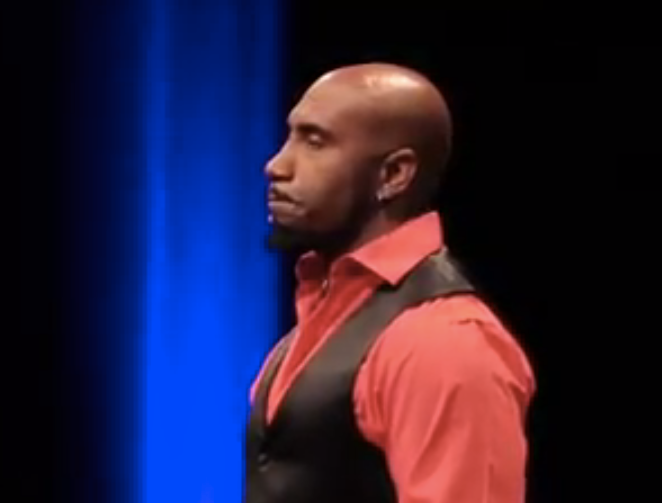A black author and poet from Denver, CO went undercover as an online white supremacist to try and understand where the trolls in the comment sections of his YouTube videos were coming from and why they all seemed to eerily parrot the same talking points about race and U.S. history.
The Washington Post spoke to Theo Wilson, who created a "ghost" persona named Lucious25 in order to win the trust of online white supremacists and join their online meetings and subscribe to their news feeds.
The project began when Wilson noted that the angry racists commenting on his series of YouTube all seemed to share a common set of beliefs, pouring through what he called a "dimensional doorway" from a world with an entirely different set of facts and values.
"During his eight months as a racist troll," wrote the Post's Peter Holley, "Wilson never revealed his true identity. When it was all over, Wilson said, he came to appreciate the way in which the far-right media bubble disables its participants — offering an endless stream of scapegoats for their problems but no credible solutions."
Wilson learned some genuinely disturbing things about the community of online racists.
"(T)here are still people who think black people are not fully human and that we are lagging in terms of evolution. The comments I'd read about our facial features being monkey-like and dark skin being proof of primitiveness were shocking," he said.
Wilson told the Post that his experiment was enabled by the times we live in, that in previous eras he would have been placing himself in mortal danger by embedding himself among racists and white power agitators.
"This experiment was completely a product of the digital age," he explained. "Even when the reverse was done in the book 'Black Like Me,' there's always that chance you could be discovered, but here that's extremely unlikely unless someone is a hacker. The Internet is sort of what a car is to road rage. The glass and steel create this bubble of perceived safety, which amplifies people's rage, but keeps them from having to deal with the consequences of that rage. There is an honesty that is exposed in the process."
He went on, "Racism is a comfy cage, and technology hasn't provided the key for getting out. We need to have courageous, face-to-face conversations with difficult people outside of the security of our laptops."
When asked if he is hopeful about the future, Wilson said, "(T)he social forces that make racism commonplace aren't necessarily going away. Look at what happened in Charlottesville, for example. How did a brand-new generation of white guys get that hateful? They never joined their dad in a lynch mob. They never smelled the burning flesh of a Negro in a town square or lived in Jim Crow America. And yet, they still adopted those hateful attitudes. That doesn't make me hopeful at all."
Watch Wilson's TED Talk about his experience, embedded below:
Leave a Comment
Related Post
